Living in Malta as an expat: pros and cons, cost of living and employment prospects
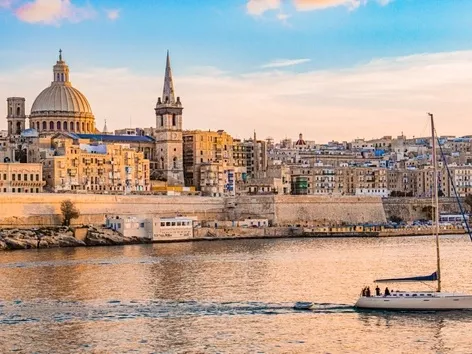
Malta is a country in Europe that boasts a wonderful climate, rich architecture and a measured lifestyle. Also, this island state is a promising destination for employment and starting a business. Find out what the pros and cons of moving to Malta are, what the cost of living is and where most of the island's expats work
Malta is known for its amazing natural landscapes and charming medieval architecture. However, the most important feature of this island country is its bright and rich life and employment prospects. All these factors attract expats from all over the world.
In 2023, Malta issued a record 41,927 residence permits to non-EU nationals, beating its previous year's figure. In general, the country issues ten times more passports than the EU average. The majority of permits were granted for employment, with 28,000 foreign workers entering Malta's labor market. Representatives of various countries go to the country, but citizens of the Philippines, South Africa, India, Nepal and Colombia prevail.
We talk about the pros and cons of living in Malta, as well as its cost and employment prospects in this article.
Pros of living in Malta
1. Exceptional quality of life
One of the most important advantages of living in Malta is the exceptional quality of life it offers. The climate on the island is Mediterranean, it is characterized by an infinite number of sunny days and mild winters - this ensures a comfortable environment throughout the year. The perfect weather is also complemented by the picturesque beauty of Malta and its rich history.
The rhythm of life in Malta offers a balance between leisure and activity. Here you can slow down and appreciate the simple joys of life, such as a leisurely meal at a seaside cafe or a sunset walk along the pier. Such an atmosphere can be a sharp contrast to the hustle and bustle of big cities.
2. Cultural wealth
Malta is a treasure trove of cultural heritage. The history of the island dates back more than 7,000 years and shows the influence of various civilizations that have left their mark here. Malta is a living museum waiting to be explored, in particular the country's capital, Valletta, is a UNESCO World Heritage Site. Numerous festivals are also held on the island throughout the year.
3. Absence of a language barrier
English is one of the official languages of Malta, which significantly simplifies the move for expats, and especially for those from English-speaking countries. The prevalence of the English language eases the initial period of adaptation and helps in running a business or building a life in Malta.
4. A great network of entrepreneurs
There are many talented entrepreneurs living in Malta. Expats are also attracted here by opportunities for holding business meetings and co-working spaces.
10 reasons why you should open a business in Malta here.
5. Low taxes
One of the advantages of living in Malta is the generally low tax burden. The country has the lowest effective taxes in the EU if you run your own business, as well as reasonable income taxes and tax breaks for people who are about to retire.
6. Friendly local population
The people of Malta are very warm and friendly. They will help you in any situation whether they know you or not.
7. Bright nightlife
There are many clubs and nightclubs in the country, which is a significant advantage for young people.
8. The lowest level of crime in the EU
Malta has a very low crime rate compared to the rest of the EU. There are about 430 police officers for every 100,000 inhabitants of Malta. This is about twice as much as in the US, Japan, Australia or Canada.
Cons of living in Malta
Although Malta offers many advantages to its residents, it is important to be aware and understand the difficulties you may face when moving to this Mediterranean island:
1. Cost of living
One of the main concerns for many considering moving to Malta is the cost of living, which can be relatively high, especially in popular expat areas such as Sliema, St Julian's and Valletta. In particular, housing prices have risen significantly here, partly due to the growing popularity of the island and limited space.
2. Overpopulation
With the growing popularity of Malta, the load on its infrastructure increases. Traffic congestion is a significant problem, especially in densely populated areas and during peak hours. Also, the influx of visitors and new residents has put pressure on public services and amenities and sometimes leads to overcrowding in public spaces and congestion.
3. Island isolation
Given that Malta is an island country, local residents face a number of problems in this regard: limited access to certain goods and services, as well as a feeling of being "cut off" from large mainland countries.
In order to safely move, travel or work in a new country, you will need health insurance. You can issue an extended policy on our website using the link.
Cost of living in Malta
Malta is generally a very affordable country to live in, but two factors create certain exceptions to this rule:
1. As Malta is an island, some imported goods may be more expensive;
2. Malta's recent economic boom and popularity among expats has made certain areas of the country much more expensive than others.
- Housing costs in Malta
Rent is one of the biggest expenses in Malta.
If you choose an older apartment outside the modern areas, it can be rented for less than 700 euros per month.
In Sliema or St. Julian's in a new complex, the rent can exceed 1,500 euros per month. But note that almost all apartments in Malta come furnished, so this factors into the cost.
- Prices for utilities in Malta
The average bill for utilities (water, electricity, fuel and Internet) is 150-200 euros per month.
- Transportation costs
The fare for a trip in public transport ranges from 1.50 EUR to 3.00 EUR one way and depends on the season and time of day. The cost of a monthly subscription is 39 euros.
- Prices in Malta restaurants and entertainment
Outside the tourist areas, a meal in a restaurant in the middle price category costs about 40 euros for two. Local beer can be purchased for around 2 euros. Coffee for 3 euros. A movie ticket is 7 euros.
- Cost of products in Malta
On average, the cost of a monthly set of products for one person is 200 euros.
We talked about the health care system in Malta, as well as medical tourism, earlier.
Employment in Malta
Malta's economy is growing steadily, with sectors such as technology, gaming and finance experiencing significant growth. These factors open up career opportunities, especially for professionals in these industries. The island's membership in the EU also provides certain advantages and stability for businesses and workers.
However, the job market can be limited compared to larger countries, and the insular nature of the business community can pose challenges for newcomers looking to establish themselves.
Malta is a bright island that offers expats a unique tapestry of experiences. When deciding to move to Malta, be sure to take into account the advantages of its cultural wealth and scenic beauty and the peculiarities of its island life and its cost.
We will remind you! For employment abroad, most Maltese choose Ireland, because the country offers favorable working conditions and a high standard of living. We previously talked about the list of specialists that is lacking in the Irish labor market and how to obtain a work permit for a foreigner in the country.
Igor Usyk - Head of Migration department at VisitWorld
To ensure a safe move to a new country, I advise you to consult a specialist. My colleagues, qualified specialists with a legal education, will help you avoid unpleasant situations during migration.
Products from Visit World for a comfortable trip:
Checklist for obtaining a visa and necessary documents in Malta;
Legal advice on immigration to Malta;
Travel insurance for foreigners in Malta;
Medical insurance all over the world.
We monitor the accuracy and relevance of our information. Therefore, if you see any error or discrepancy, please write to our hotline.
Recommended articles
2 min
Work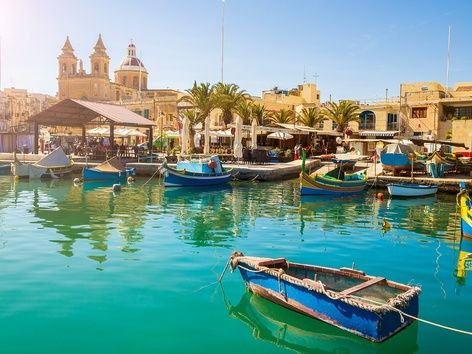
Work in Malta in 2024: accelerated procedure for obtaining permits for highly skilled workers
"The Specialized Employee Initiative" (SEI) in Malta as a new option for obtaining a work permit for highly skilled non-EU workers. Learn more about the eligibility requirements, features and benefits, as well as why Malta is actively attracting foreign workers
16 sty. 2024
More details3 min
Popular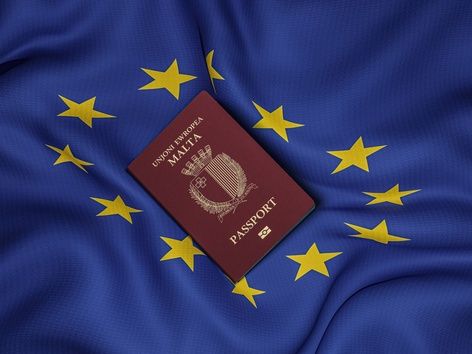
The Maltese passport is recognised as the rarest passport in the world
Malta is a small country in the heart of the Mediterranean Sea, which has become one of the most desirable countries to live in thanks to its investment citizenship programme. Learn more about the reasons why the Maltese passport is unique
10 lut. 2024
More details3 min
Pros & Cons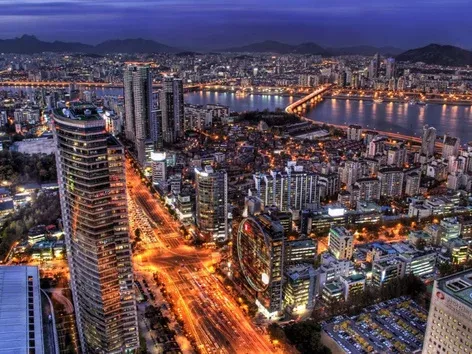
Pros and cons of living in South Korea: what is important for expats to know?
Life in South Korea will provide expats with many opportunities, but it also comes at a price. When planning to move here, you should be prepared for certain advantages and disadvantages. Find out what are the pros and cons of living in South Korea and what to pay attention to when planning a move to the country
28 gru. 2025
More details3 min
Expats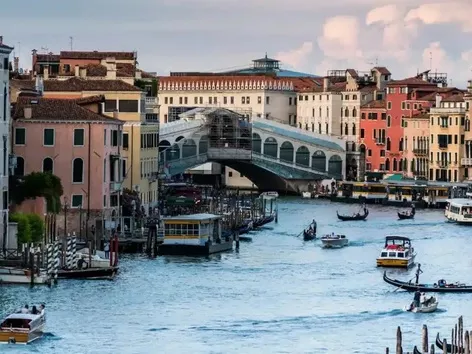
Cost of living in Italy: expenses for housing rent, food, entertainment and budget for the month
Italy is a country with a high quality of life and a rich culture. Friendly population, developed transport infrastructure and high level of health care attract more and more expats here. Is it expensive to live in Italy? Find out the prices of accommodation, food, entertainment and more in Italy in 2024
17 wrz. 2024
More detailsAll materials and articles are owned by VisitWorld.Today and are protected by international intellectual property regulations. When using materials, approval from VisitWorld.Today is required.
